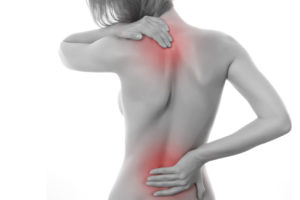We all have tinted lenses. We see the world through these lenses. These lenses influence our decisions every day. Every day we all need to make decisions about our health. We need to base these decisions on something. Decisions like what to eat, how much exercise to do, how much work to do, how much sleep is good, how much alcohol is healthy or at least non-detrimental?
To answer such questions, we often find that the most attractive solutions are the ones that align with what we value. If we value our health then we look for ways that we can be “healthier”. If we want to live longer, or decrease our risk of getting an illness, then we look for solutions in line with that. We might want to look better or even feel better, with all the complex connotations that this entails. One of the central problems in making decisions regarding daily life is that many of these values are highly complex and even flexible concepts. What really is the meaning of “maximising health?”; is it actually immortality? What would “total happiness” feel like? These concepts have inherently subjective natures. The inbuilt perfectionism in “maximising health” may make this concept inherently unobtainable. How would we know if we have reached the ceiling of “total happiness”?
Despite the complexity of values, the need to make decisions about daily life remains. Providing assistance to help guide us towards our value related goals is the method of scientific study. Scientific study often takes a long time, and can be uncertain in many areas, but there exists a prevailing scientific theory to help guide the majority of decisions we make in daily life. But up to date scientific theories often have a limited impact on our daily decision making. Why, in the area of health, is it in this era of great availability and advancement of scientific knowledge that unscientific trends and fads still catch on? A key problem may be that scientists have not yet found a suitable method for reaching enough people with their messages. For this, scientists themselves need to take a portion of blame. A further problem may be that scientific evidence has simply become a minefield of information, the last two decades have seen an exponential growth in published studies in scientific journals. These are a few issues that scientists are currently grappling with and attempting to develop improved methods for.
However, key players in every individual’s decision making are cultural and social influences. Science is viewed through philosophical lenses which are tinted by culture, society and what we already know, or at least already believe. Some knowledge or ideas may be culturally or socially unacceptable, whilst others are very fitting, despite shaky evidence. There is a risk therefore that we only absorb knowledge that fits our world views. This bias is shaped by factors such as that we are more inclined to trust our friends and family in times of uncertainty. But we might also believe in something simply because we want it to be true or it fits nicely with something we have already decided on. Every new piece of information we receive is judged in relation to what we already “know”. If we are certain of a ‘fact’ and we receive a new piece of information that is contradictory to this known ‘fact’ there is a higher probability that the new piece of information will be rejected. In other words, we can see the world through our own tinted lens. All of these factors can lead to the temptation to look for an answer that suits our values and stop there. If we like red wine we eagerly pick up on evidence of its benefits and are overly critical of the evidence pointing to its negative effects. It is easy therefore to start a trend or a fad by taking small amounts of evidence that are culturally and socially appealing and make them sound more logical or more positive than scientific evidence suggests. How many times have you seen headlines like “eat as much as you like and still lose weight fast”, “6-pack in 3 weeks guaranteed”? It is up to us to be critical of what we hear and read, but equally important is to be aware of what we already know and value and how this can be influencing our judgement. We need to take off our tinted lenses from time to time!




